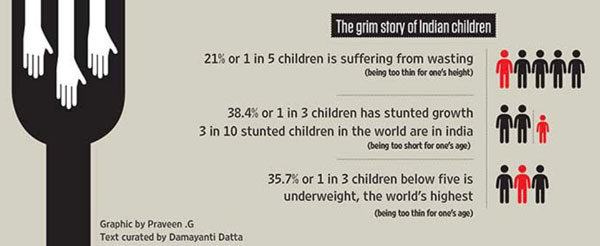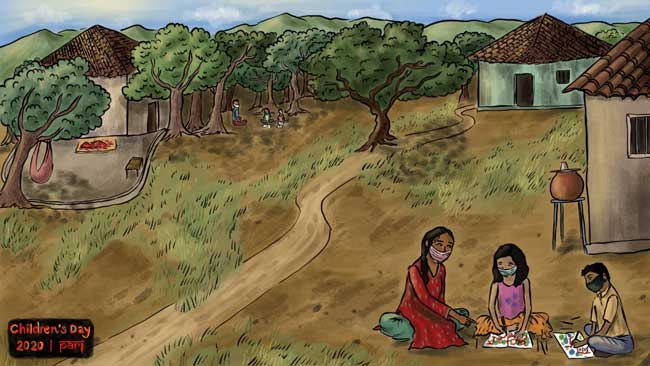Find up-to-date information provided by, for and about Indian authors, researchers, officials, and educators
List of web portals covered by the present Custom search engine
Ashoka Trust for Research in Ecology and the Environment (ATREE) – www.atree.org
Freedom United – www.freedomunited.org
Government of India (all websites ending on “.gov.in”)
Shodhganga (a reservoir of Indian theses) – https://shodhganga.inflibnet.ac.in
Survival International – www.survivalinternational.org
UCLA Digital Library – https://digital.library.ucla.edu
Unesco – https://en.unesco.org
Unesco digital library – https://unesdoc.unesco.org
Unicef – www.unicef.org
United Nations – www.un.org/en
Video Volunteers – www.videovolunteers.org
WorldCat (“the world’s largest library catalog, helping you find library materials online”) – https://worldcat.org
To search Indian periodicals, magazines, web portals and other sources safely, click here. To find publishing details for Shodhganga’s PhD search results, click here >>
Search tips
Combine the name of any particular state, language or region with that of any tribal (Adivasi) community.
Add keywords of special interest (music, poetry, dance just as health, sacred grove and biodiversity); learn about the rights of Scheduled Tribes such as the “Forest Rights Act” (FRA); and the United Nations “Declaration on the Rights of Indigenous Peoples”, “Universal Declaration of Human Rights”, “women’s rights”, or “children’s right to education”.
Specify any other issue or news item you want to learn more about (biodiversity, bonded labour and human trafficking, climate change, ecology, economic development, ethnobotany, ethnomedicine, global warming, hunter-gatherers in a particular region or state, prevention of rural poverty, water access).
For official figures include “scheduled tribe ST” along with a union state or region: e.g. “Chhattisgarh ST community”, “Himalayan tribe”, “Scheduled tribe Tamil Nadu census”, “ST Kerala census”, “Particularly Vulnerable Tribal Group Jharkhand”, “PVTG Rajasthan”, “Adivasi ST Kerala”, “Adibasi ST West Bengal” etc.
In case the Google Custom Search window is not displayed here try the following: (1) toggle between “Reader” and regular viewing; (2) in your browser’s Security settings select “Enable JavaScript” | More tips >>
Note: hyperlinks and quotes are meant for fact-checking and information purposes only | Disclaimer >>
[*] Some clarifications on caste-related issues by reputed scholars
Understanding “caste” in the context of Indian democracy: The “Poona Pact of 1932”
“Mahatma Gandhi and BR Ambedkar differed over how to address caste inequities through the electoral system. Their exchanges led to the Poona Pact of 1932, which shaped the reservation system in India’s electoral politics. […]
Two prominent figures who have significantly contributed to this discourse are Mahatma Gandhi, Father of the Nation, and Bhimrao Ramji Ambedkar, Father of the Constitution. The two stalwarts of Indian politics, while revered equally by the public, had contrasting views on the caste system. Their subsequent debates have shaped the course of Indian society and politics. While Gandhi denounced untouchability, he did not condemn the varna system, a social hierarchy based on occupation, for most of his life. He believed in reforming the caste system through the abolition of untouchability and by giving equal status to each occupation. On the other hand, BR Ambedkar, a Dalit himself, argued that the caste system disorganised and ‘demoralised Hindu society, reducing it to a collection of castes’. […]
And yet, despite their differences, they developed an understanding to work for the betterment of the marginalised.” – Rishabh Sharma in “How Ambedkar and Gandhi’s contrasting views paved way for caste reservation” (India Today, 6 October 2023)
URL: https://www.indiatoday.in/history-of-it/story/ambedkar-gandhi-caste-system-poona-pact-1932-reservation-2445208-2023-10-06
~ ~ ~
“That upper caste groups should declare themselves to be OBCs [Other Backward Castes] and want to avail of the reservation policy is a pandering to caste politics of course, as also are caste vote-banks. It is partially a reflection of the insecurity that the neo-liberal market economy has created among the middle-class. Opportunities are limited, jobs are scarce and so far ‘development’ remains a slogan. There’s a lot that is being done to keep caste going in spite of saying that we are trying to erode caste. We are, of course, dodging the real issue. It’s true that there has been a great deal of exploitation of Dalit groups and OBC’s in past history; making amends or even just claiming that we are a democracy based on social justice demands far more than just reservations. The solution lies in changing the quality of life of half the Indian population by giving them their right to food, water, education, health care, employment, and social justice. This, no government so far has been willing to do, because it means a radical change in governance and its priorities.” – Romila Thapar (Emeritus Professor of History, Jawaharlal Nehru University) interviewed by Nikhil Pandhi (Caravan Magazine, 7 October 2015)
URL: https://caravanmagazine.in/vantage/discipline-notion-particular-government-interview-romila-thapar
~ ~ ~
“Casteism is the investment in keeping the hierarchy as it is in order to maintain your own ranking, advantage, privilege, or to elevate yourself above others or keep others beneath you …. For this reason, many people—including those we might see as good and kind people—could be casteist, meaning invested in keeping the hierarchy as it is or content to do nothing to change it, but not racist in the classical sense, not active and openly hateful of this or that group.” – Book review by Dilip Mandal for Caste: The Origins of Our Discontents (The Print, 23 August 2020)
URL: https://theprint.in/opinion/oprah-winfrey-wilkerson-caste-100-us-ceos-indians-wont-talk-about-it/487143/
~ ~ ~
“The theoretical debate on caste among social scientists has receded into the background in recent years. [However] caste is in no sense disappearing: indeed, the present wave of neo-liberal policies in India, with privatisation of enterprises and education, has strengthened the importance of caste ties, as selection to posts and educational institutions is less based on merit through examinations, and increasingly on social contact as also on corruption. There is a tendency to assume that caste is as old as Indian civilization itself, but this assumption does not fit our historical knowledge. To be precise, however, we must distinguish between social stratification in general and caste as a specific form. […]
From the early modern period till today, then, caste has been an intrinsic feature of Indian society. It has been common to refer to this as the ‘caste system’. But it is debatable whether the term ‘system’ is appropriate here, unless we simply take for granted that any society is a ‘social system’. First, and this is quite clear when we look at the history of distinct castes, the ‘system’ and the place various groups occupy within it have been constantly changing. Second, no hierarchical order of castes has ever been universally accepted […] but what is certain is that there is no consensus on a single hierarchical order.” – Harald Tambs-Lyche (Professor Emeritus, Université de Picardie, Amiens) in “Caste: History and the Present” (Academia Letters, Article 1311, 2021), pp. 1-2
URL: https://www.academia.edu/49963457
~ ~ ~
“There is a need for intercultural education. We all need to work together to bridge these divides not only between religions and castes but also regions. It is not correct to think that one part is better than the other. Some of the limitations of India as a whole are due to our common heritage, say the one that has restricted women from having a flourishing life for themselves.” – Prof. V. Santhakumar (Azim Premji University) in “On the so called North-South Divide in India” (personal blog post in Economics in Action, 13 April 2024)
URL: https://vsanthakumar.wordpress.com/2024/04/13/on-the-so-called-north-south-divide-in-india/

Graphic © Outlook India 26 August 2019 | Enlarge >>
“The tribal food basket has always been diverse and nutritious” >>
Childrens rights: UNICEF India >>
When it comes to protein and calorie counts, milk and bananas do not match up to eggs, particularly for [Madhya Pradesh], where development indicators are among India’s worst:
Almost 51% of children under five years of age are underweight, and 49% are stunted.The state has India’s highest infant mortality rate, i.e. the number of deaths of children less than one year of age per 1000 live births.
The state also has India’s third-highest maternal mortality ratio, i.e. the number of registered maternal deaths due to birth- or pregnancy-related complications per 100,000 registered live births.
Here’s how an egg a day might help.
An egg has a protein value of 17.11 gm, which is higher than the required daily protein requirement of 15 gm recommended by the Integrated Child Development Scheme (ICDS), a centrally sponsored child-welfare scheme.
Eggs also have a higher kilo calorie count: 210, which is nearly half the daily requirement for a school child, while one cup of milk has 146 kilo calories.
Source: “Why Shivraj Chauhan Should Allow Tribal Children Eggs” by Prachi Salve (www.factchecker.in, 4 June 2015)
URL: https://www.factchecker.in/why-shivraj-chauhan-should-give-schoolchildren-eggs/
Date Visited: 11 May 2021
The highest number of cases registered for crimes against Scheduled Castes in 2020 was in Uttar Pradesh (12,714), while the the highest number of cases against Scheduled Tribes in that year was in Madhya Pradesh (2,401).
Source: “Crimes against Scheduled Castes and Scheduled Tribes rose from 2018 to 2020, Centre tells Lok Sabha”, Scroll.in, 22 July 2022
URL: https://scroll.in/latest/1028900/crimes-against-scheduled-castes-and-scheduled-tribes-rose-from-2018-to-2020-centre-tells-lok-sabha
Date Visited: 14 September 2022
[Bold typeface added above for emphasis]

Related posts: how India’s tribal communities cope with the pandemic >>
Covering the human cost of Covid-19
The nationwide Covid-19 lockdown that started on March 25 [2020] has triggered distress for millions of ordinary Indians – stranded migrant workers, farmers, sugarcane cutters, Adivasis, Dalits, sanitation workers, construction labourers, cancer patients staying on city pavements, brick kiln labourers, pastoral nomads, and others. While many are on the brink with no work, income or food, several continue to work amid extremely hazardous conditions | Read about them in these PARI reports from across the country >>
See also
Central region – Central Zonal Council
eBooks, eJournals & reports | eLearning
Languages and linguistic heritage
List of scheduled tribes by the Commissioner of Tribal Development – Madhya Pradesh
Tips for using interactive maps
Toggle to normal view (from reader view) should the interactive map not be displayed by your tablet, smartphone or pc browser
For details and hyperlinks click on the rectangular button (left on the map’s header)
Scroll and click on one of the markers for information of special interest
Explore India’s tribal cultural heritage with the help of another interactive map >>
Explore India’s tribal cultural heritage with the help of several interactive maps, specially created for visitors to this website:
- An alphabetical journey across India: from Andaman to West Bengal
- Northeastern India: the “Seven Sister States” & Sikkim
- Visit a museum in India: Indigenous art, anthropological & ethnographical collections
- A virtual journey across time and space: from Gondi-Harappan to present & future
- Locations for video documentaries & external media contents
- Particularly Vulnerable Tribal Groups & Endangered languages
- Places associated with press reports and blogs about India’s tribal cultural heritage
- A virtual journey across India: from Ladakh to Gujarat